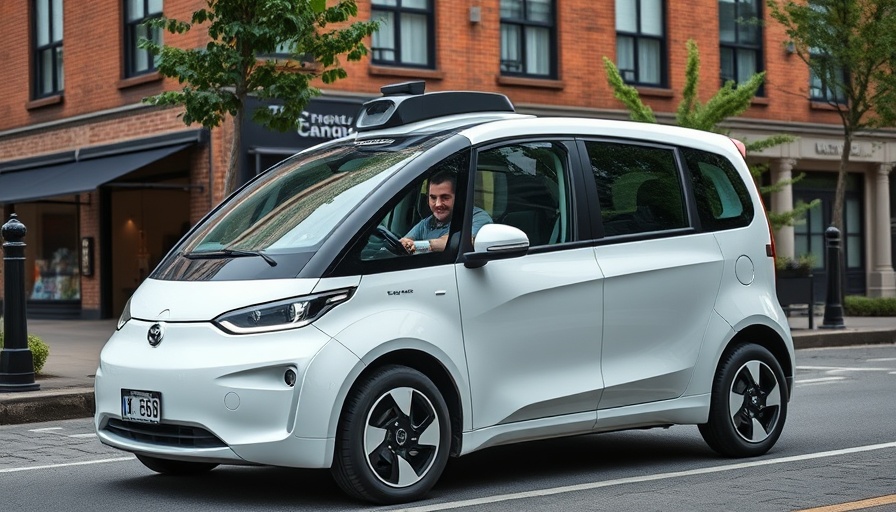
Driving Into the Future: How Waymo Is Redefining Mobility
The freedom to drive has long been an integral part of American culture, symbolizing independence and exploration. Yet, as self-driving technology gains traction, questions emerge about its impact on personal driving experiences and the overall landscape of transportation. Will these innovations enrich our car-centric lifestyles or hinder them?
A New Era of Commuting
Waymo, the self-driving car subsidiary of Alphabet Inc., has transformed the image of autonomous vehicles. With over 2,000 electric vehicles operating in major cities including Los Angeles and San Francisco, and a promising expansion across the United States, Waymo is reshaping commuting. According to their reports, they now provide approximately 250,000 trips weekly, showing high demand and user satisfaction. Self-driving vehicles, once viewed as a threat to personal driving, may actually bring relief to everyday commuters burdened by long travel times.
Self-Driving Cars vs. Traditional Ridesharing
As traditional ridesharing platforms like Uber face stiff competition from Waymo, it raises an intriguing question: What happens to our commuting options? Many drivers in South Carolina, accustomed to navigating accident claims and insurance processes, could benefit from this shift. With Waymo aiming to enhance accessibility and reduce congestion, self-driving taxis are likely to emerge as a viable alternative. While Uber remains a staple, its future could hinge on its ability to adapt in an increasingly autonomous market.
Understanding the Safety Features
Safety is a pivotal concern regarding self-driving technology. Waymo’s autonomous vehicles leverage advanced technology including Lidar and AI to ensure reliable navigation and accident avoidance. This technology does not get tired or distracted and operates continuously. The idea of having a driverless ride can initially cause anxiety for some. However, the data indicates a significant potential for reducing traffic fatalities. For instance, experts estimate that more than 1.3 million individuals die annually from vehicle accidents, suggesting that enhancing automated vehicle technology could drastically improve road safety.
The Commercialization Frontier
Looking ahead, the commercial viability of self-driving vehicles is not without challenge. Analysts forecast that by 2030, fully automated cars could become commonplace, yet considerable investment in infrastructure, regulation, and vehicle technology remains necessary. According to McKinsey, automakers like Ford and GM have pivoted away from costly autonomous taxi initiatives in favor of personal-use strategies. The balance of expectations and technological evolution must align for the widespread adoption of this technology.
Implications for Insurance and Liability
As driverless car technology evolves, so too will the insurance landscape. The typical insurance claims process—already fraught with delays and confusion for many South Carolinians—will require adjustments. With the promise of reduced accidents via autonomous vehicles, insurance companies may shift their policies, focusing less on individual liability and more on product liability. This change could fundamentally alter how drivers navigate post-accident scenarios, reimbursement processes, and their interactions with insurers. South Carolina drivers burdened by insurance claims after accidents will need to stay informed on this evolving paradigm.
Conclusion: Embracing the Change
While the road to fully autonomous vehicles is laden with significant hurdles, the potential benefits cannot be overlooked. For South Carolina's vehicle owners grappling with insurance issues, the rise of self-driving cars could represent an avenue toward alleviating the stress of commuting while paving the way for a new era of travel. Preparing for these changes now enables individuals to anticipate the evolving future of vehicles and transport.
As we edge closer to this transportation revolution, it's crucial to continue learning about how self-driving technology can streamline our daily responsibilities, especially regarding insurance claims and handling vehicle-related incidents. For comprehensive support, consider consulting your local insurance experts to navigate future claims effectively.
 Add Row
Add Row  Add
Add 




Write A Comment